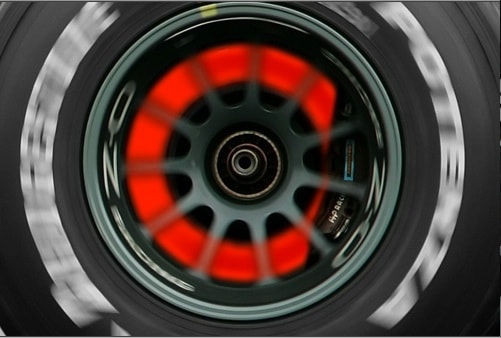Hello guys, a doubt recently generated in my mind.
F1 cars have no ABS. I haven't seen any car block the wheels at high speeds, from this I arrive to the conclution that the brakes are not powerful enough( with high downforce ) to block the brakes. Else we would see ocassional wheel lock, as it happens when they trailbrake(low speed) to the corners, locking the inner front wheel.
If this is true, stopping is determined by the strength of the driver? Seems doubtful. If they need more force why don't they put bigger caliper pistons( constant pressure, Force=P.A, high area, higher force), or smaller brake piston( Smaller area, larger pressure P=F/A) of course this would require larger fluid displacements, more pedal movement.
Since I know F1 mechanics are not stupid, it can't be as simple as that. So I think they might not do it to avoid overheating the brakes.
Can anyone help me clarify this point? What's the limiting factor in an F1 car braking at high speeds?
Thank you very much, bye bye!
Caito.-
- Login or Register
No account yet? Sign up


